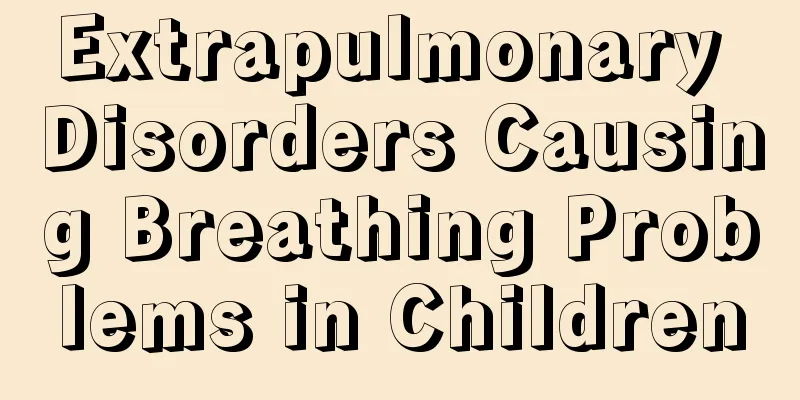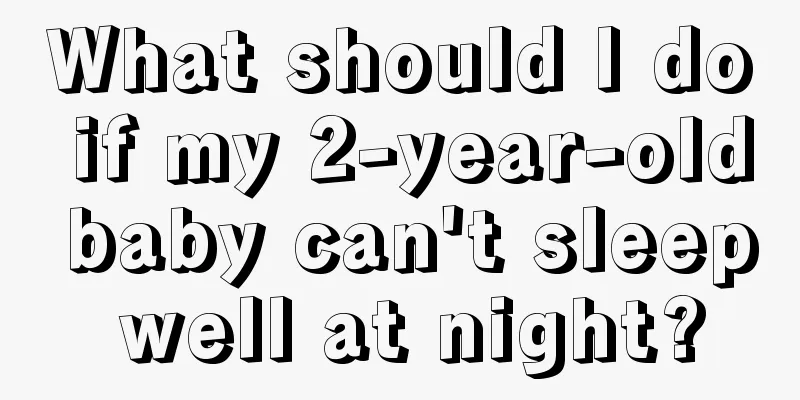What are the signs of normal hearing in a newborn?

|
After a newborn is born, his facial features and body functions are not fully developed, so his hearing is also limited. Generally, the hearing of newborns begins to develop 1-7 days after birth. During this period, the hearing is very sensitive. Normal hearing in newborns is manifested by quick reactions. When they hear music, they will dance to the melody or show curiosity.
1. 3 to 7 days after birth The hearing of a newborn baby becomes quite acute. If someone shouts in his ear or makes other noises at this time, the baby will have a series of stress reactions such as opening or closing eyes, getting startled, and speeding up or slowing down breathing. People who have taken care of babies will also have this experience: when a sudden sound is heard, the baby's upper limbs will abduct and straighten, the fingers will spread, and then the upper limbs will flex in a hugging reflex. These phenomena can be used as reference indicators for newborn hearing testing. 2. After the baby is 3-4 months old The above reactions will gradually subside. The baby has developed a directional response to the sound and will turn his head or shift his gaze in the direction of the sound. Parents can test their child's hearing through his conditioned reflexes. If you play music for your baby before each feeding, after about a month, a child with normal hearing will make sucking movements when he hears the music. Many parents make a "hissing" sound from their mouths when they are helping their children to urinate. After a while, the children will naturally urinate whenever the adults make this sound. If these conditioned reflexes cannot be formed, parents should be alert to whether their children have hearing problems.
At this time, the reflexes of hearing and vision have been established. When children with normal hearing hear sounds at this stage, they will often turn their heads to find out where the sounds are coming from, and they can also recognize the voices of their loved ones. Newborn babies can only cry, their eyes cannot focus, and their movements are uncoordinated. However, they can suck the nipples forcefully at seven or eight days old. At one month old, the baby can distinguish between hot and cold in terms of diet and when taking a bath; at two months old, the baby can quietly look at the toy hanging above the chest when awake. The baby's eyes can move with the moving toys, the head can turn to the direction of the voice, and the baby can slightly raise his head when lying in the prone position. Observe the child's reaction to the sound If a bell is suddenly rung or the volume of a tape recorder is turned up, the awake newborn may suddenly shake his limbs, startle, or close or open his eyes, which means the child's hearing is normal. If a 4-5 month old child's parents or others ring a bell or clap their hands behind him, he will immediately stop the action and turn his head towards the source of the sound, indicating that the child has normal hearing. On the contrary, if the child has no reaction and is indifferent, it means there is a hearing problem. 2. Observe the child’s facial expression Babies over 4 months old will smile when they hear pleasant sounds. As they grow older, children with normal hearing become lively and active, have rich facial expressions, are sensitive to various external sounds, and often show rich emotions such as joy, anger, sorrow, and happiness. In particular, they often laugh or shout loudly in response to the teasing voices of adults. However, if a child is not lively, has slow reactions, is indifferent to changes in the surrounding environment and things happening around him, and rarely laughs or shouts, you should consider problems with hearing development.
Generally, children around 8 months old will call dad and mom under the guidance of adults. When they are 12 months old, they can call dad and mom consciously. When they are 18 months old, they can speak simple 12-word sentences to express their wishes. If a child cannot utter the two single sounds of "dad" and "mom" by the age of one, and cannot say short phrases such as "eat" and "drink" at 18 months, then if the child's brain development is normal, then he has a hearing problem. In short, to determine whether a child's hearing is normal, you can also carefully observe the child's visual attention and ability to understand things, adaptability to the environment, emotional response, etc. If any abnormality is found, the child should be taken to the hospital for further examination in time. |
<<: What causes high TSH in newborns?
>>: What is the normal value of TSH for newborns?
Recommend
Reasons why babies cry at night
Some babies really torture their parents because ...
Can babies eat lamb? Please learn the correct way to eat
For adults, mutton is a very good food, but for c...
What happens if a three-month-old baby has a runny nose?
Many children will have a runny nose, which is ve...
How to properly provide oxygen to premature babies?
The mixed blessing today is that premature babies...
Causes of prolonged fever in children
When children are young, their bodies are fragile...
Baby's night sleep time
A baby’s daily routine is completely irregular, e...
What causes blisters on children's bodies?
The skin of infants and young children is delicat...
What to do if your child coughs and has phlegm
As the old saying goes: The spleen is the source ...
How to make a fancy breakfast for children
Breakfast plays an important role in children'...
The baby's jaundice has not subsided after 42 days
If the baby's jaundice has not completely sub...
How should children's appetite be adjusted?
Children are in the stage of growth and developme...
What to do if your child has inverted nipples
Inverted nipples are a problem that must be paid ...
Reasons why babies spit up
Many people are consulting about the problem of n...
What to do if your child has heavy moisture
It is very harmful to human health to have dampne...
When your child has a fever, here are six rules to help you deal with it calmly
Every time a child has a fever, the whole family ...









